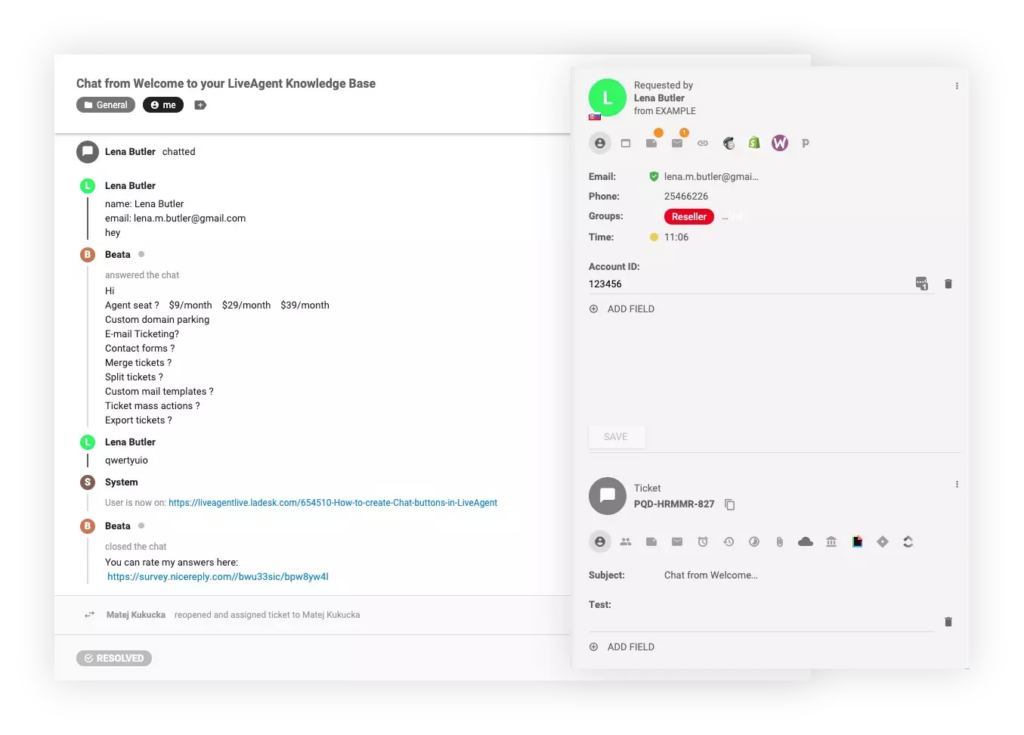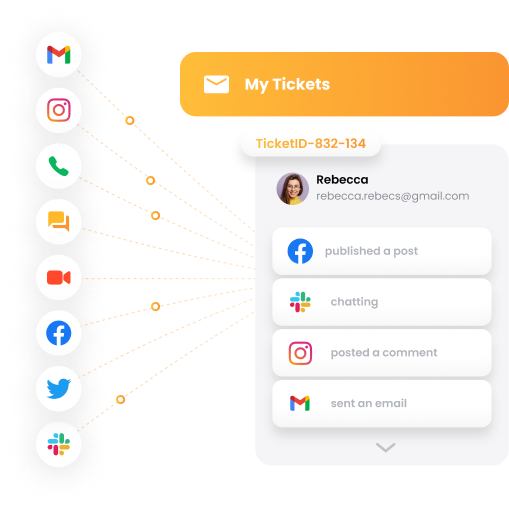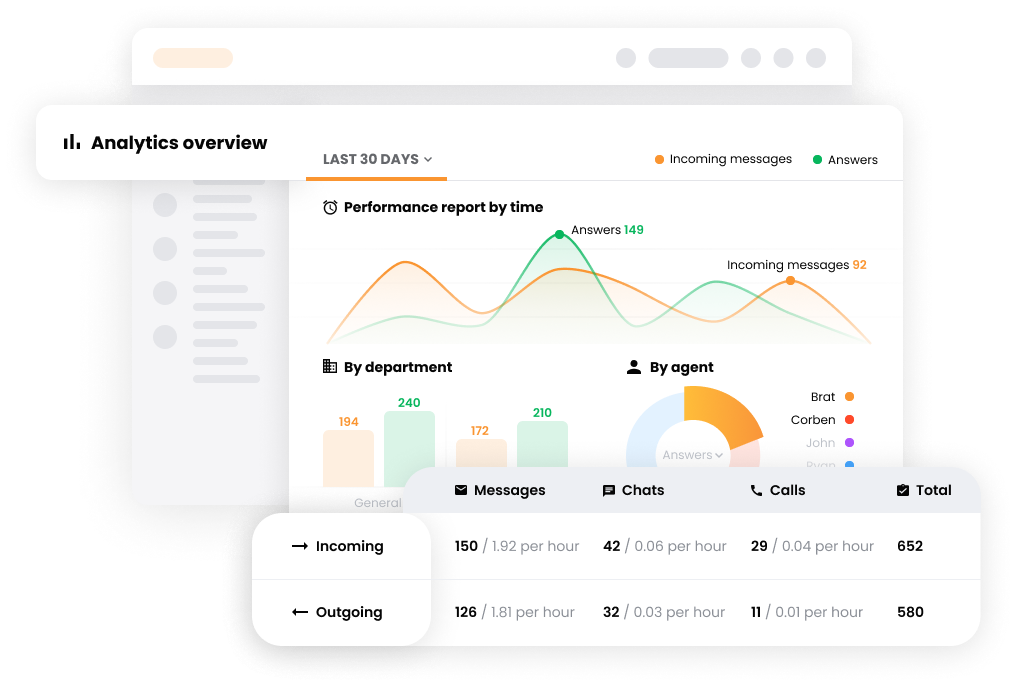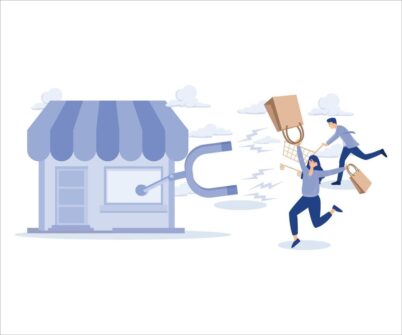With 68% of customers leaving a company due to perceived indifference, understanding customer retention strategies can transform a business’s future.
Customer retention is not merely a buzzword; it is a key metric that can dictate a company’s growth trajectory. It encompasses the practices and strategies that a business employs to keep existing customers engaged and invested over time. This not only ensures consistent revenue streams but also enhances the brand’s reputation.
This article delves into the essentials of customer retention, including its definition, its significance in reducing acquisition costs, and foster brand loyalty. Furthermore, we explore actionable strategies and the challenges businesses face in implementing effective retention initiatives, ultimately equipping you with the knowledge to enhance customer loyalty.
Table of Contents
Definition of customer retention
Customer retention is the process of encouraging existing customers to continue buying from a business. It focuses on people who have already purchased, unlike customer acquisition, which targets new customers. High customer retention rates are important for a business’s success. They lead to fewer lost customers to competitors and increase company’s profits by boosting the number of repeat buyers.
Customer retention is especially crucial for subscription-based businesses. It plays a key role in maintaining recurring revenue and enhancing customer lifetime value. Keeping a close eye on customer retention helps businesses meet customer expectations and improve their key performance indicators (KPIs).
Here’s a simple breakdown of the benefits of customer retention:
- Fewer Lost Customers: Helps retain current customers.
- Increased Profits: More repeat buyers mean higher revenues.
- Subscription Success: Essential for ongoing revenue in subscription models.
- Better KPIs: Improves metrics like customer satisfaction and loyalty.
Customer retention is vital for sustaining growth and success in any business.
Importance of customer retention
Customer retention reflects how satisfied customers are with a brand. When customers keep coming back, it shows their strong connection to the brand’s products or services. A well-designed customer retention strategy lessens the need for constant customer acquisition. This leads to more efficient advertising. Retaining customers also boosts a business’s key performance indicators (KPIs) and ensures customer expectations are met. It’s often more cost-effective than finding new customers. Satisfied, repeat customers contribute to overall profitability. Good retention can also improve revenue through upselling and cross-selling.

LiveAgent can significantly enhance customer retention by providing businesses with efficient customer support tools that facilitate seamless communication. With features like live chat, help desk ticketing, and automated responses, LiveAgent ensures that customer inquiries are addressed promptly and effectively.
Reducing Acquisition Costs
Customer retention can be much cheaper than gaining new customers. It can cost 5 to 25 times less to keep them rather than attract newcomers. This shows how economical retention strategies can be. Over the past decade, customer acquisition costs have jumped by 222%. This makes expanding the customer base harder. Keeping loyal customers boosts sales, as they account for 65% of retail business and spend 67% more per purchase than new customers. By focusing on retention, businesses increase customer lifetime value (CLV) and overall profitability. Leveraging retention metrics helps improve marketing strategies and cuts acquisition costs effectively.
Increasing Revenue
Utilizing data and user tracking can customize sales offers and boost revenue. Upselling and cross-selling, like premium options or bundles at checkout, increase revenue. Discounts and promotions encourage repeat buys, increasing revenue from current customers. Offering free trials or gifts can motivate customers to complete their orders and raise revenue. Analytics tools optimize the customer journey, improving conversion rates and overall revenue.
Fostering Brand Loyalty
Customer retention is key to building lasting relationships, driving repeat sales, and positive referrals. Happy customers tend to return, significantly raising profit margins. Personalized loyalty programs offering special discounts or rewards keep customers engaged and loyal. Contented customers often become brand ambassadors, attracting new clients through word-of-mouth. Focusing on customer experience, by providing timely support and simple services, ensures loyalty and prevents customers from shifting to competitors.
Here’s a summarized breakdown:
| Benefits of retention | Examples |
|---|---|
| Cost efficiency | Reduces need for new customers |
| Revenue growth | Upselling and cross-selling |
| Brand loyalty | Personalized loyalty programs |
| Satisfied customers | Become brand ambassadors |
Customer retention is not just a strategy; it’s a necessary approach for sustainable business success.
Key metrics for measuring client retention
Customer retention refers to the ability of a business to keep its customers over time. High retention rates lead to increased market share and lower costs for finding new customers. To understand retention, businesses use different metrics. These include customer retention rate, repeat purchase rate, customer lifetime value, customer churn, and revenue churn statistics. By tracking these, businesses can notice trends, adjust their offerings, and improve customer experience.
Customer Retention Rate
The customer retention rate measures how many customers a business keeps over time. It uses this formula:
[ \text{Customer Retention Rate} = \frac{\text{# of customers at the end of a period} – \text{# of new customers acquired}}{\text{# of customers at the beginning of the period}} \times 100 ]
Customer Retention Rate = ( Ce – Cn Cb) × 100
Where:
- Ce = Number of customers at the end of the period
- Cn = Number of new customers acquired during the period
- Cb = Number of customers at the beginning of the period
A high retention rate shows strong brand loyalty. Monitoring this rate helps businesses assess their engagement strategies. A low rate compared to the industry average suggests a need for better retention strategies.
Churn Rate
The churn rate measures the percentage of customers who stop using a company’s services during a set period. The formula is simple:
Churn Rate = Cl Cb × 100
Where:
- Cl = Number of customers who left during a period
- Cb = of customers at the beginning
Common reasons for high churn include unmet expectations and poor customer service. A low churn rate means effective engagement strategies are working. Understanding churn is vital as it shows past retention outcomes.
Customer Lifetime Value
Customer lifetime value (CLV) indicates the total revenue expected from a customer over the entire relationship. It is calculated as:
Customer Lifetime Value = Average order amount Cp* Cr
Where:
- Cp = Number of purchases per year
- Cr = Number of retention rate
CLV helps businesses find the most profitable customer groups. It links with operational data to show the cost of losing customers and supports retention efforts. A higher CLV suggests strong customer loyalty, proving the value of retaining customers.
Using these metrics helps businesses understand and improve their customer retention strategies.
How to increase customer retention: Proven strategies
Customer retention is the practice of keeping existing customers engaged and satisfied with your brand. It is crucial for business success. Let’s explore some proven strategies to enhance customer retention.
Personalized Customer Experiences
Personalization is key to building customer loyalty. Did you know that 80% of consumers are more likely to buy from brands offering personalized experiences? When customers feel a brand understands them, loyalty grows. Brands like Netflix and Spotify excel at this by personalizing content based on user preferences. To do this in your business, map out customer journeys and personalize interactions at every stage. This might include sending tailored product updates or helpful guides after a customer first joins you.

LiveAgent can enhance personalization by enabling businesses to tailor customer interactions based on individual preferences and behaviors. With its robust CRM capabilities, LiveAgent allows organizations to collect and analyze customer data, including past interactions, purchase history, and feedback.
Additionally, LiveAgent’s automation features can help in sending personalized re-engagement emails to lapsed customers, aligning with their specific needs and preferences to encourage loyalty and drive repeat business.
Loyalty Programs
Loyalty programs reward customers for sticking with your brand. These programs can include points systems, discounts, and tiered rewards. For example, Starbucks gives free drinks and personalized discounts, making customers feel appreciated. Automate repeat purchase incentives with loyalty program software. A well-crafted loyalty program can create emotional connections with your customers, moving beyond simple transactions.
Exceptional Customer Service
Providing exceptional customer service is a cornerstone of customer retention. When you listen to customer concerns and offer personalized solutions, it makes them feel valued. High-quality service can turn a negative experience into a positive one, building customer loyalty. By anticipating customer needs and offering proactive support, such as custom content suggestions, you enhance their experience. Consistently delivering outstanding service differentiates your brand in competitive markets and boosts retention.

LiveAgent is a versatile tool designed to enhance customer service by consolidating multiple communication channels into a single platform. This allows businesses to manage customer inquiries efficiently, whether they come via email, chat, phone calls, or social media.
Additionally, its reporting and analytics capabilities provide insights into customer behavior and service performance, enabling businesses to continually improve their support strategies.
Active Feedback Loops
Engaging with customer feedback is essential to understanding their needs. Use surveys, interviews, and usability tests to gather insights. For instance, a simple thumbs up or down after a support call can reveal customer sentiment. Analyzing this feedback helps identify and fix friction points in the customer journey. It’s important to make this an ongoing process to keep improving products and services. This continual engagement shows customers that their opinions matter, enhancing satisfaction and retention.
By implementing these strategies, businesses can create long-lasting relationships with their customers, ultimately leading to increased loyalty and retention.
Challenges in customer retention
Customer retention is essential for every business. Yet, it isn’t always easy. Companies may overuse technology, such as chatbots, which can lack the personal touch customers prefer. This can deter meaningful interactions. Also, without a long-term communication plan, businesses may find it hard to keep customers loyal. Changes in customer retention numbers can show where a company is strong or weak.
However, not all businesses can effectively analyze these important metrics. The high cost of getting new customers makes it crucial to focus on retention strategies. However, the pressure to cut acquisition costs can make it hard to maintain existing relationships. Furthermore, while free offers and referral programs seem effective, overreliance on short-term incentives can prevent lasting customer ties.
Identifying churn causes
Understanding why customers leave is key to improving retention. Two major factors are service failures and competition. Service failures can happen in small ways, like long wait times, or in big ways, like identity theft. Meanwhile, new products from competitors might lure customers away. This highlights the need for ongoing market analysis. High churn rates often indicate unmet expectations or low engagement. This signals to businesses that they need to dig deeper to find out why customers are leaving. By monitoring these reasons, businesses can improve their strategies to reduce churn.
How can LiveAgent help your business with churn rate?
LiveAgent offers a variety of features that can significantly help reduce customer churn by enhancing customer experience and enabling effective communication. Here’s how LiveAgent can address key aspects of churn prevention:
- Unified Communication Channels: LiveAgent integrates various communication channels—such as live chat, email, phone, and social media—into a single platform. This ensures that customers can reach out through their preferred method, providing a seamless experience.
- Real-Time Support: With its live chat feature, LiveAgent allows customer support agents to assist customers in real-time. This immediacy can help resolve issues before they escalate, reducing the likelihood of customers feeling neglected or considering switching to competitors due to slow response times.
- Help Desk and Ticketing System: LiveAgent’s ticketing system allows businesses to efficiently manage and prioritize customer inquiries. By tracking customer interactions and issues, businesses can identify patterns that may indicate potential churn. For example, if a customer frequently raises support tickets, it may signal dissatisfaction that needs addressing before they decide to leave.
- Customer Feedback Tools: LiveAgent enables businesses to gather customer feedback through surveys and ratings. This direct line of communication allows companies to understand customer sentiment, identify pain points, and address them proactively. By showing customers that their feedback is valued and acted upon, businesses can foster loyalty and reduce churn.
- Knowledge Base and Self-Service Options: LiveAgent includes a self-service knowledge base where customers can find solutions to common issues on their own. Providing access to resources helps customers feel empowered and less frustrated when they encounter problems, thereby increasing their satisfaction and likelihood to stay.
- Analytics and Reporting: LiveAgent’s reporting features allow businesses to analyze customer interactions, track churn rates, and identify trends. By leveraging data, companies can make informed decisions on how to improve their services and customer experience, ultimately aiming to reduce churn.
- Automated Responses and Chatbots: Automation features, including chatbots, can handle common inquiries outside of regular business hours. This ensures that customers receive assistance whenever they need it, thus enhancing satisfaction and reducing the chances of them seeking support from competitors.
- Personalized Experiences: LiveAgent provides insights into customer history and interactions, which allows support agents to tailor their responses and solutions. Personalized service can create a stronger connection with customers, leading to increased loyalty.
Ready to boost your customer retention?
Be a master in your field with LiveAgent. Give it a free trial today and see the difference!
Addressing customer complaints
Handling customer complaints quickly and effectively is crucial. It shows customers they are valued and their concerns are taken seriously. By using customer feedback, businesses can spot improvement areas and avoid future issues. Excellent customer service is vital for retaining customers, especially when issues arise. Companies that prioritize customer support increase their chances of keeping customers happy. High-quality service builds loyalty, making it less likely for satisfied customers to switch to competitors.
Adapting to market changes
Adapting to market changes requires strong customer communication. Regular updates, emails, and newsletters help keep customers in the loop. Trust plays a huge role in customer retention—88% of customers value authenticity in brands. This means companies need to adjust their messaging to meet expectations.
Watching churn rates can reveal if strategies are working or need changes. A solid retention strategy boosts repeat customers and helps businesses adapt to changing demands. Understanding customer segments and tracking individual churn rates can spotlight at-risk customers. By tailoring strategies, companies can adapt more effectively.
Future trends in customer retention
Customer retention strategies are essential for business growth. They help turn casual buyers into loyal advocates, fostering repeat purchases. Such loyalty can greatly boost a company’s profits. In fact, 80% of future profits are projected to come from just 20% of existing customers. Prioritizing customer retention gives businesses an edge, especially in the ecommerce sector, where acquiring new customers is costly.
Feedback from loyal customers offers insights into both strengths and areas needing improvement. Key factors impacting retention include service quality, customer satisfaction, and trust.
Role of Technology
Technology plays a crucial role in enhancing customer retention. It supports rewards and loyalty programs, making it easier for businesses to incentivize repeat purchases. These systems track customer actions and rewards automatically. An omnichannel marketing strategy, fueled by automation tools, enables effective targeting of different customer segments.
This personal touch improves engagement and retention. Technology also helps collect and analyze customer feedback through surveys and reviews. Using CRM systems, companies maintain communication with customers by automating newsletters and updates. Data analytics aids in understanding customer behaviors, allowing brands to create tailored loyalty programs.
Importance of Data Analytics
Data analytics is pivotal in understanding customer retention. It sheds light on customer behavior and preferences, giving businesses the information they need to drive satisfaction and loyalty. Multiple models, like logistic regression, help explain what influences customer retention and predict future behaviors. Propensity models can foresee customer actions based on past patterns.

AI-driven analytics solutions automate the reporting process, enabling informed decision-making. It’s essential to integrate a CRM solution into a data-driven strategy to consolidate data and enhance marketing and customer support efforts.
Evolution of Customer Expectations
Meeting evolving customer expectations is key to retaining them. A strategic approach that values satisfaction, engagement, and long-term relationship building is foundational. Clear communication and proactive outreach are critical in maintaining positive customer relationships.
Gathering feedback during onboarding and other important interactions helps identify improvement areas. Over-delivering on promises by exceeding expectations can foster trust and loyalty. Monitoring Customer Lifetime Value (CLTV) allows businesses to assess the effectiveness of their retention strategies. This alignment with customer needs ensures lasting loyalty.
Ready to boost your customer retention?
Be a master in your field with LiveAgent. Give it a free trial today and see the difference!
Conclusion
Customer retention is crucial for a successful business. It boosts brand loyalty and reduces customer churn. When customers stay, they often make more purchases, increasing profitability. A high customer retention rate signals satisfaction, creating enthusiastic brand advocates who refer others.
To evaluate these efforts, track key metrics like customer lifetime value and customer churn. These indicators help assess the success of your retention strategies.
Effective strategies improve customer education about products, ensuring a positive experience. This lays the groundwork for lasting relationships.
Ready to see these benefits for yourself? Try our 30-day free trial to explore how you can enhance your customer retention efforts.
Frequently Asked Questions
What is the difference between customer retention and customer acquisition?
Customer retention is all about keeping your current customers happy, engaged, and loyal to your brand. It’s the key to ensuring they keep coming back. On the other hand, customer acquisition is focused on bringing in new customers through marketing, promotions, and outreach. While acquisition expands your customer base, retention maximizes the value of those already with you.
What are the key components of a successful customer retention program?
A winning customer retention program hinges on personalized communication, rewards, top-notch customer service, and consistent engagement. Personalization makes customers feel special, while reward programs encourage repeat business. Excellent service ensures they’re satisfied, and staying engaged keeps your brand at the forefront of their minds, strengthening loyalty and reducing the chance they’ll switch to a competitor.
How can I use to re-engage inactive customers?
To win back inactive customers, start for example with personalized email campaigns featuring special offers or discounts based on their previous behavior. Reach out with engaging blog posts that speak to their interests, such as product recommendations or updates they’ll find useful. Don’t forget to follow up with surveys to learn why they became inactive and address their concerns.
How can consistent communication help in retaining customers?
Consistent communication keeps your brand at the top of customers’ minds and strengthens your relationship with them. Regular updates, personalized messages, and prompt responses show that you truly value their business. This ongoing connection helps you quickly address any issues, and provides them with the information they need, making them more likely to stay with your brand for the long haul.
Share this article
LiveAgent monthly updates: April edition
Discover LiveAgent’s April updates: chat fixes, improved ticket sorting, API enhancements & a new HelpDesk migration plugin. Read more!
Smart customer satisfaction software
Boost customer satisfaction in 2025 with LiveAgent! Deliver personalized, 24/7 support on every channel. Free trial, no credit card needed.

 Български
Български  Čeština
Čeština  Dansk
Dansk  Deutsch
Deutsch  Eesti
Eesti  Español
Español  Français
Français  Ελληνικα
Ελληνικα  Hrvatski
Hrvatski  Italiano
Italiano  Latviešu
Latviešu  Lietuviškai
Lietuviškai  Magyar
Magyar  Nederlands
Nederlands  Norsk bokmål
Norsk bokmål  Polski
Polski  Română
Română  Русский
Русский  Slovenčina
Slovenčina  Slovenščina
Slovenščina  简体中文
简体中文  Tagalog
Tagalog  Tiếng Việt
Tiếng Việt  العربية
العربية  Português
Português 




